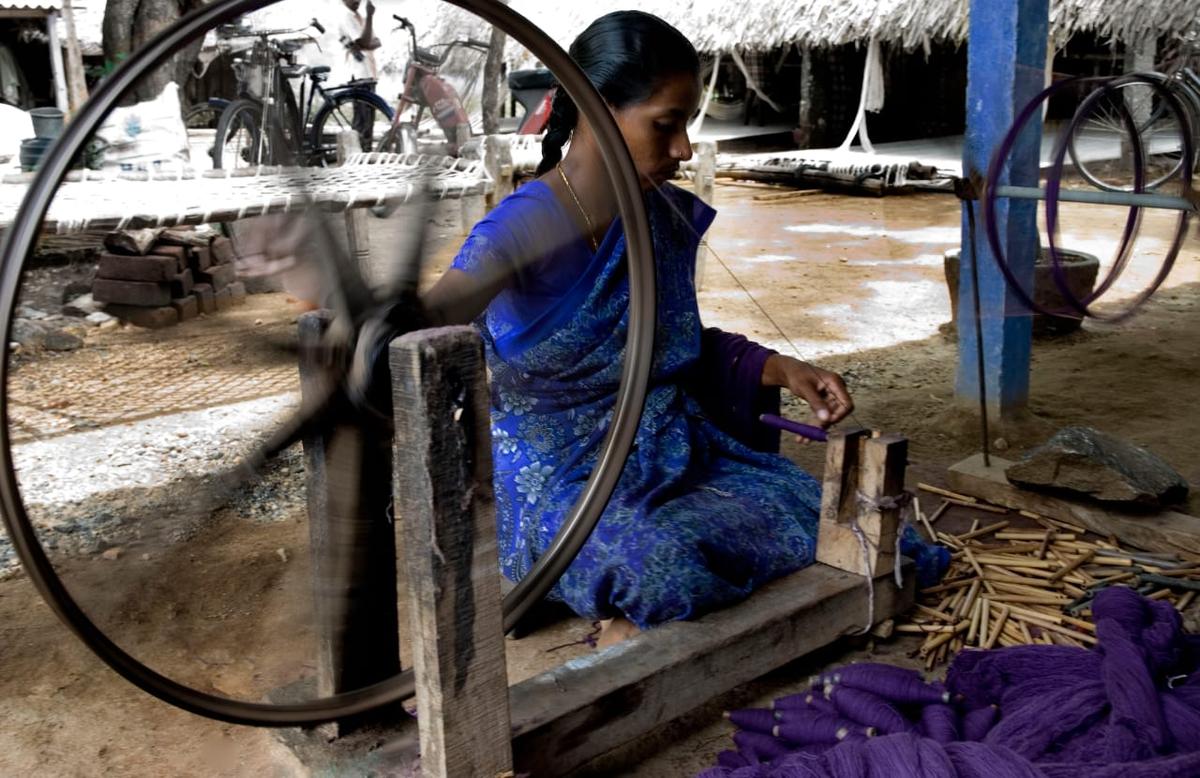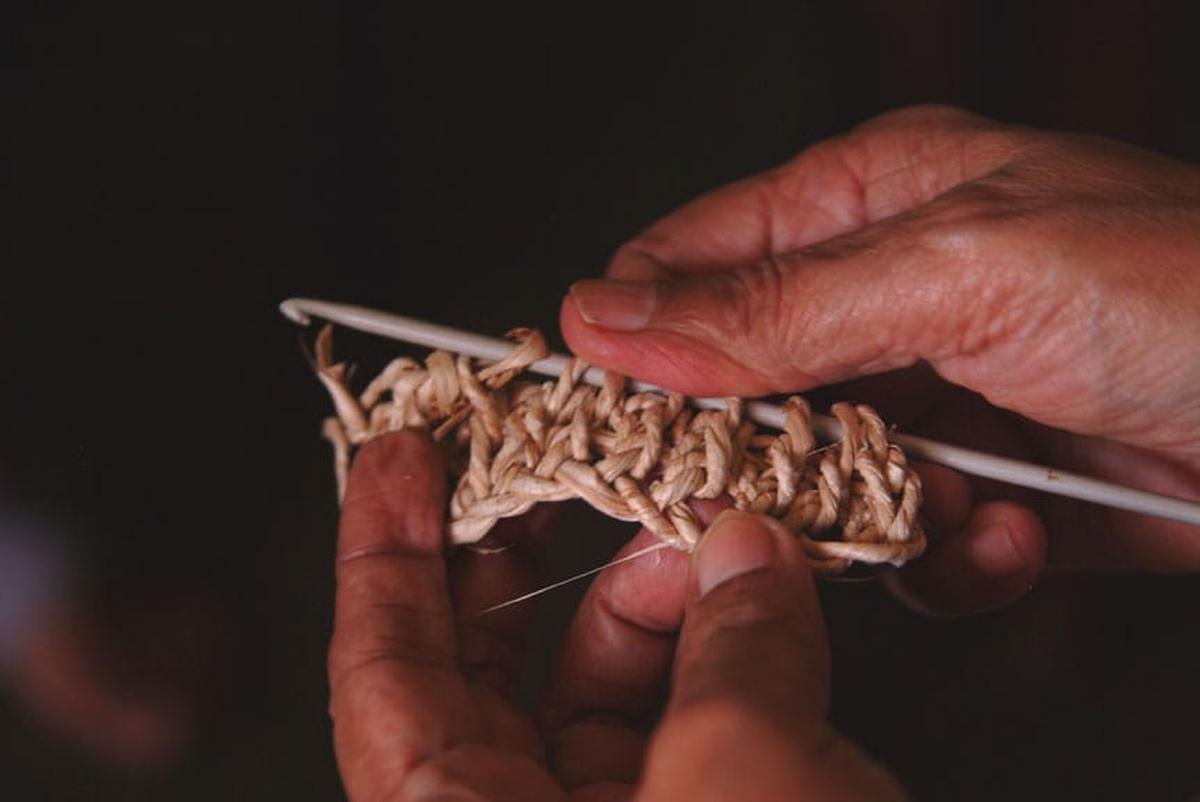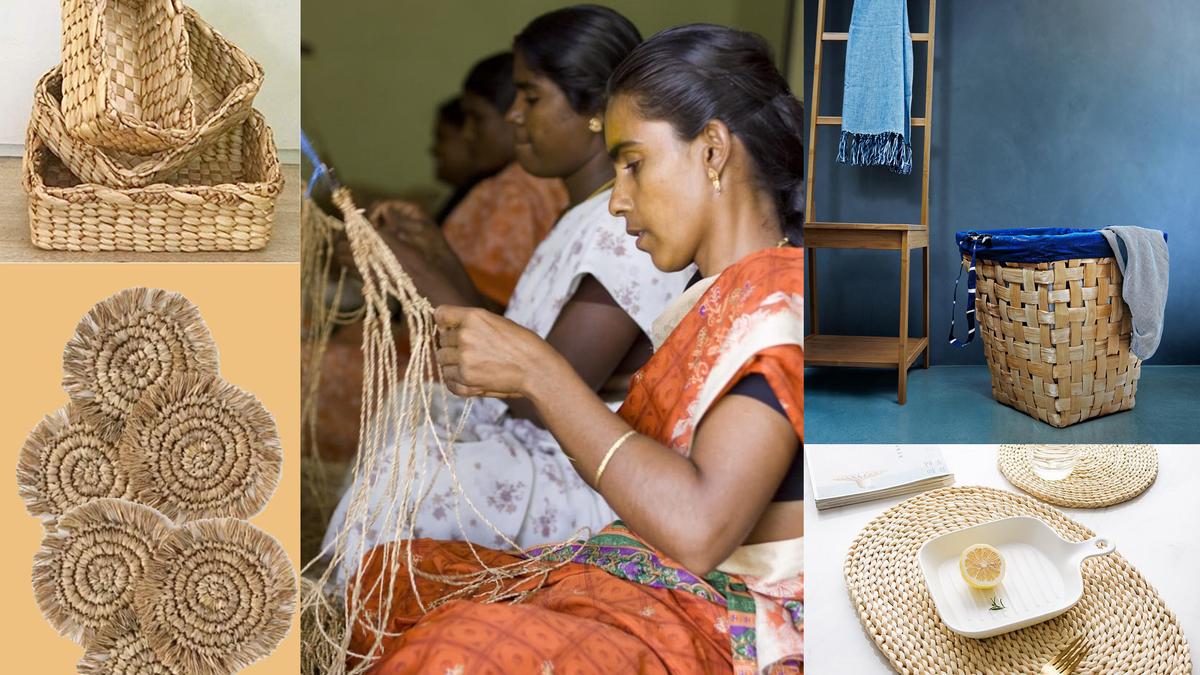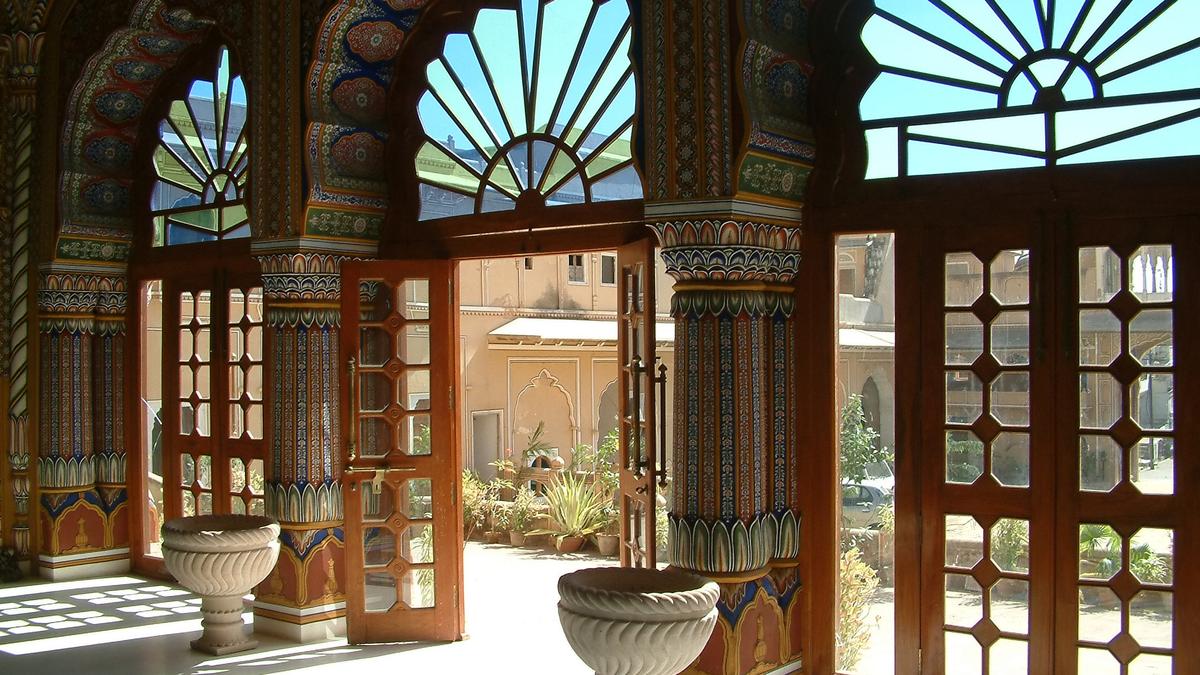Products of Rope International and women making them at the factory
| Photo Credit: Special Arrangement
A group of women giggle shyly at me on Google Meet as Pandiselvi, a former firecracker factory worker, proceeds to describe how her life has changed for the better in Sivakasi. She mentions the “random headaches and stomach ailments” she had while working at the factory in Virudhunagar district in Tamil Nadu, adding that the promise of weekly wages kept her going. Over the last few years, the firecracker capital of India has been seeing an increase in the number of fatal explosions. With their families discouraging them from working in such unsafe environments, Pandiselvi, 27, explains that the employment opportunity at Rope International, situated in nearby Madurai, came at the right time. The women are now being trained in multiple hand weaving and crafting techniques, using natural fibres like banana fibre, water hyacinth and river grass, to create about 1,000 different products, from wicker baskets and planters to lampshades and place mats.

At the Rope factory in Madurai
| Photo Credit:
Special Arrangement
Positive chain reaction
The workforce of the lifestyle and home accessories company, incubated at IIT Madras and whose customer base includes international retail giants like IKEA and H&M, is across the South but most of them are concentrated in and around Sivakasi. Since 2008, teams have been working with natural materials sourced from across South India. Rope International’s co-founder, Sreejith Nedumpully, says it was while touring a few villages in rural Tamil Nadu that he saw a business opportunity that would also improve the living conditions of people in those areas. “People are often forced to participate in unhealthy bonded labour, which in turn has invited economic crises and debt traps to their doorstep,” says the Chennai resident, adding, “We have more than 400 artisans at the factory. Over 2,000 skilled and unskilled workers have been impacted, as they work for our suppliers in Tamil Nadu, Karnataka and Kerala.” He says the artisans now work in a safer environment, with an employment contract that earns them close to 60% more than their earlier income.
Priyadarshini, 37, who previously packed firecrackers at a unit in the area, says better health, pay and job security have encouraged others like her to learn some of these traditional crafts. She recalls how in addition to experiencing severe hair loss and health issues like rashes, burning eyes, stomach aches and irregular menstrual cycles while working in the firecracker industry, they had to deal with the constant fear of an explosion due to a lack of any protective equipment. “We used to work till late night and did not have fixed working hours like we have here,” she says.

Sreejith Nedumpully, co-founder of Rope International
| Photo Credit:
Special Arrangement
Sharing benefits
The town known for accidents and explosions will one day perhaps change into a place they can proudly call safe and developed. We can sense the approach of change as the women chit-chat and laugh at work, during our virtual interaction, weaving busily to the rhythmic music playing in the background. For its part, Rope International hopes to inspire more companies to ensure a better working culture. “There is a huge opportunity to manufacture and offer contemporary natural fibre products from India using our crafts skills, labour availability and abundance of renewable natural materials,” concludes Nedumpully.

A Rope International product
| Photo Credit:
Special Arrangement
Behind the explosions
The All India Central Council of Trade Unions (AICCTU) had recently created a fact finding team to look into the serial explosions at Sivakasi firecracker factories, with the report released earlier this month. According to Professor R. Murali, a retired principal who was part of this fact finding team, “Top industries, which have been licensed and create standard fireworks maintain some kind of quality. They pay a very basic amount but do not necessarily exploit the workers as much as the smaller factories, which are definitely more in number.” The subcontractors who employ these workers on a mass scale do not give importance to either climate or space constraints, which inevitably leads to such accidents, he adds. On an average, men get paid close to ₹1,000 and women around ₹700 for a day’s work, he observes, which is why many opt for the fireworks industry despite the stakes.

Related Topics
Source Homevior.in



